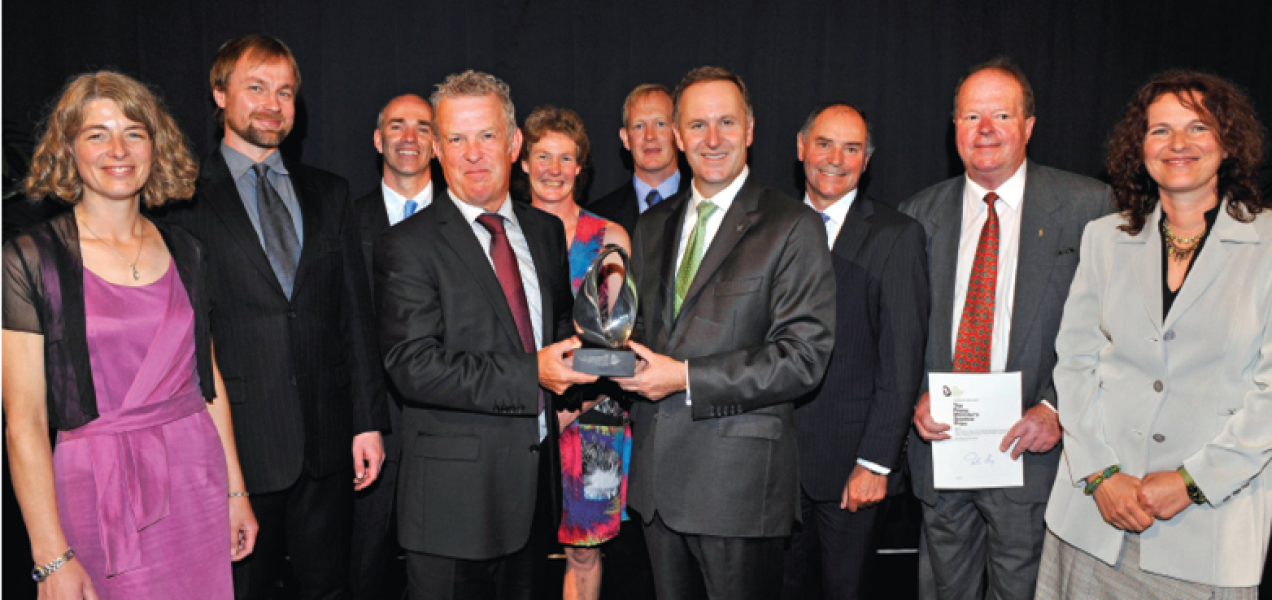A team of NIWA and University of Otago scientists has won the New Zealand Prime Minister's Science Prize for 2011 with world-leading research on geoengineering.
Find out more about the New Zealand Prime Minister's Science Prize
The nine-member team investigated the merits of adding iron to the ocean to lower levels of atmospheric carbon dioxide (CO2), thus helping to mitigate climate change.
"We were essentially testing the iron hypothesis put forward in the early 1990s," says team leader and NIWA oceanographer Dr Philip Boyd. "Parts of the world's oceans – particularly the Southern Ocean – are deficient in iron, which seems to be the limiting factor for phytoplankton growth." Phytoplankton are microscopic plants that play a key role in the world's climate by drawing CO2 from the atmosphere into the ocean.
"Ice core records of Antarctic climate over the last million years have shown periods when atmospheric CO2 has been significantly lower than it is today," says Boyd. "This could be linked to higher phytoplankton abundance, fuelled by iron blown into the ocean from the deserts of Patagonia, Namibia and Australia."
A growing commercial lobby has seized on the iron hypothesis as a rationale for fertilising large swathes of ocean with iron, considered a form of geoengineering.
The scientists, based at the Centre for Chemical and Physical Oceanography at the University of Otago, spent weeks in the stormy Southern Ocean aboard NIWA's research vessel Tangaroa, and in the Gulf of Alaska, to test the hypothesis. They fertilised large tracts of ocean – an area equivalent to a million olympic-sized swimming pools – with an iron solution, successfully producing phytoplankton blooms big enough to be detected by satellites.
Find out more about RV Tangaroa
But Boyd says that, while the experiment proved that increasing iron supply enhances the ocean's ability to remove CO2, "the effect wasn't as great as expected. The process would be very costly, and it's fraught with complex side effects, including the release of other, more potent, greenhouse gases."
Findings from the study – regarded globally as seminal work – have been published in prestigious international journals. They have also informed international geo-engineering workshops and governmental decision-making.
The Prime Minister's Science Prize recognises transformative science and was presented in Auckland in December. The team plans to use most of the $500,000 award to fund a state-of-the-art laboratory for studying Southern Ocean phytoplankton.

